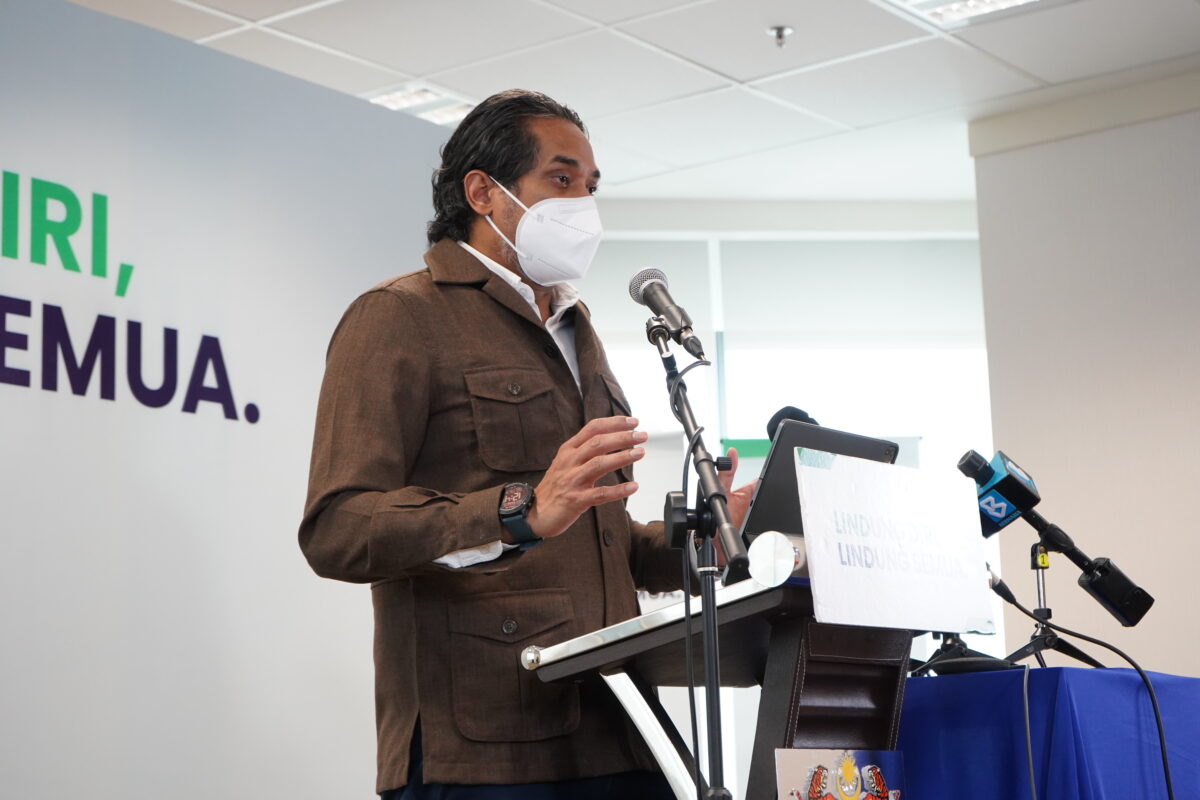KUALA LUMPUR, August 2 — The success of the National Covid-19 Immunisation Programme (PICK) will depend on the country’s Covid-19 mortality and hospital admission rates amid reports of breakthrough infections, Khairy Jamaluddin said.
Despite the government’s effort to speed up the inoculation drive, the number of daily Covid-19 cases remains high at more than 10,000 daily nationwide for the past three weeks. A not insignificant portion accounted for breakthrough infections involving vaccinated individuals, usually mild or asymptomatic.
On July 27, Health director-general Dr Noor Hisham said 12 per cent or 1,941 cases of 16,117 new infections reported that day had “vaccination history”; it is unclear if this comprises both partially and fully vaccinated people.
Khairy noted that the vaccinated Covid-19 patients referred to by Dr Noor Hisham were either asymptomatic or had only mild symptoms.
He said this was also the case in Singapore, where higher infection numbers due to the Delta variant has not resulted in fully vaccinated individuals falling severely ill into Categories Four or Five of Covid-19 disease. “Their symptoms are, at worst, mild,” Khairy told a media briefing today.
“We hope that going forward, even with the Delta variant, numbers may still be high, but what we would like to see and what we hope will be the outcome from the vaccination is that the key numbers that we need to be looking at, which is the death rate, the utilisation of intensive care unit (ICU) beds, as well as the rate of hospitalisation comes down.
“That is really going to be the next indicators that we want to look at as far as the success of PICK is concerned,” the PICK coordinating minister said.
Meanwhile, Khairy said the Covid-19 Immunisation Task Force (CITF) will carefully monitor the United States’ Centers for Disease Control and Prevention’s (CDC) recent findings on vaccinated people infected with the Delta variant transmitting the virus as easily as unvaccinated individuals who contracted the disease.
“I think with these breakthrough infections that are happening due to the Delta variant, it is firstly very important that we get ourselves fully vaccinated as it can still protect us from the worst outcomes of Covid-19, but secondly we cannot and must not drop our guard as far as standard operating procedures (SOPs) are concerned.
“Many countries which have vaccinated quickly have reverted back to mask mandates. At one point, they allowed people to take off their masks but now they have asked for the face masks to come back, especially in indoor settings, and I think that will be the case for Malaysia for quite some time,” Khairy said.
The Washington Post’s report on an internal CDC document on the highly transmissible Delta variant — said to be as contagious as chickenpox — noted that while coronavirus vaccines prevent more than 90 per cent of severe disease, they may be less effective at preventing infection or transmission, thus more breakthrough infections and higher community spread may occur.
The CDC document, however, stressed that vaccines reduce the risk of severe disease or death by 10-fold or higher, besides a three-fold reduction in risk of infection.
The CDC now recommends wearing a face mask in potential public indoor settings that can spark substantial or high transmission in order to reduce the risk of coronavirus transmission by fully vaccinated people.
Fully vaccinated people in the United States are also asked to wear masks in casual indoor settings when there are any immunocompromised or at-risk or unvaccinated household members, reversing a guideline in May that permitted fully vaccinated people to not wear masks.
Khairy said high vaccination rates in Labuan and Sarawak have led to a decline in death and hospitalisation rates from Covid-19. As of yesterday, about 82 per cent of adults in Labuan have been fully vaccinated, as well as 66 per cent of adults in Sarawak, the highest inoculation rates in the country.
“In Labuan, for instance, a lot of Pfizer was used, and in Sarawak, a lot of Sinovac was used, but both types of vaccines have to some extent succeeded in reducing hospitalisation and death rates in the two states, which have a very high percentage of the population that has been vaccinated.
“We hope to see this in the next few weeks in Selangor and Kuala Lumpur as well, as more and more people receive their second dose and are considered fully vaccinated, which is two weeks after your second dose. We hope, we pray that the number of people who are admitted into hospitals, ICUs and death rate will come down in the Klang Valley,” Khairy said.
Citing daily Covid-19 case data issued by the Health Ministry on August 1, Khairy said out of 106 Category Five patients reported that day, 96 were not vaccinated and 10 had a history of vaccination. Out of 65 people in Category Four, 47 were unvaccinated and 18 had a history of vaccination. Similar trends could be seen across Covid-19 cases in Categories One, Two and Three, Khairy said.
“So, while we are starting to see some cases where people who have a vaccination history are falling into Categories Four and Five, the percentage of that against those who have not received any vaccination is much much less.
“We will try to get more granular data on what we categorise of people, who we categorise as having a history of vaccination — are they people who are partially vaccinated, fully vaccinated or otherwise — and I think that will give us a better, more granular data on how to interpret the effectiveness of the vaccination programme, especially against the Delta variant,” Khairy said.








